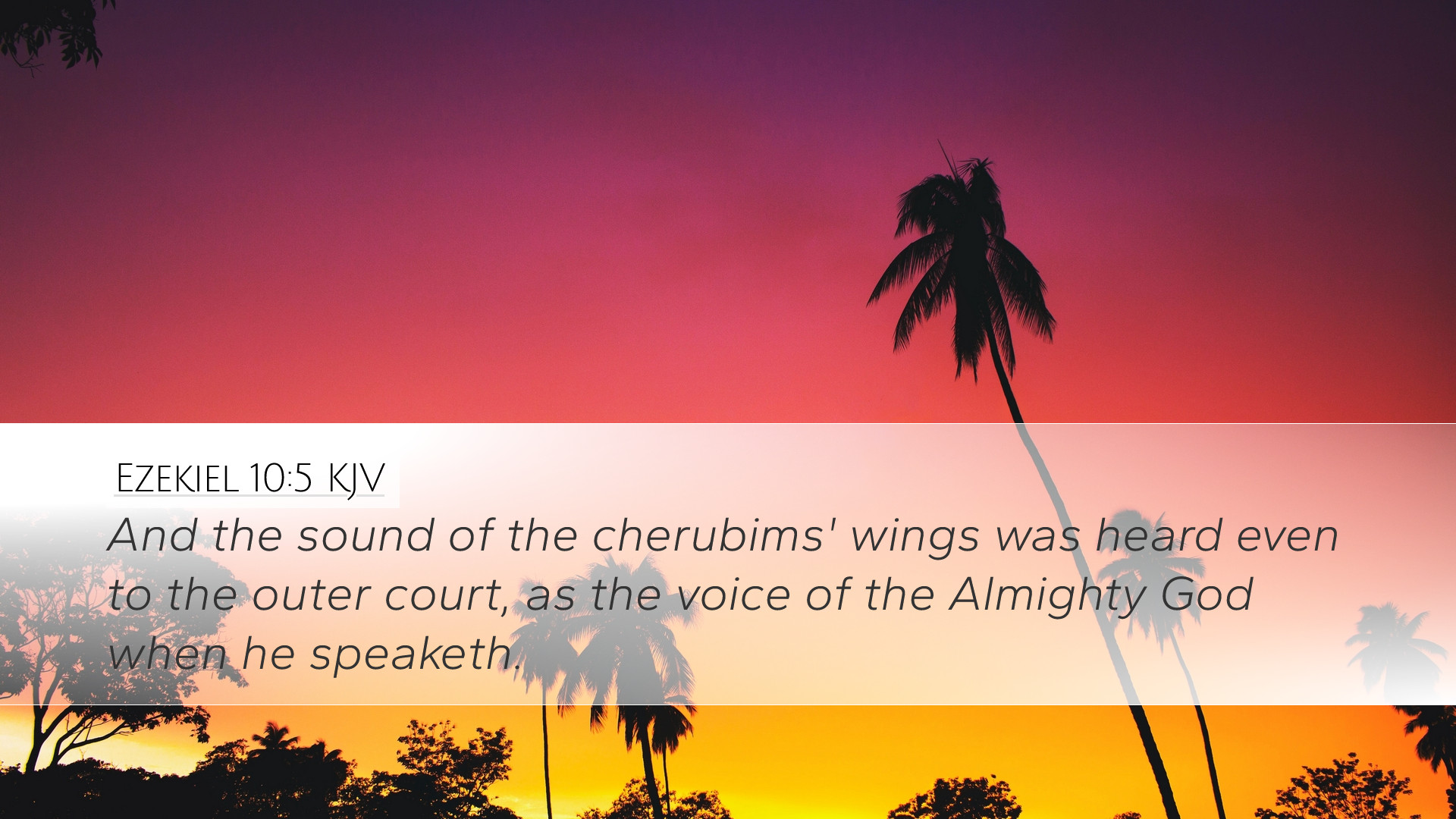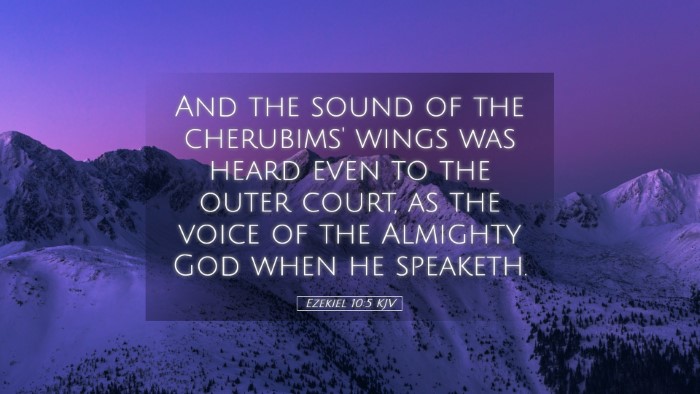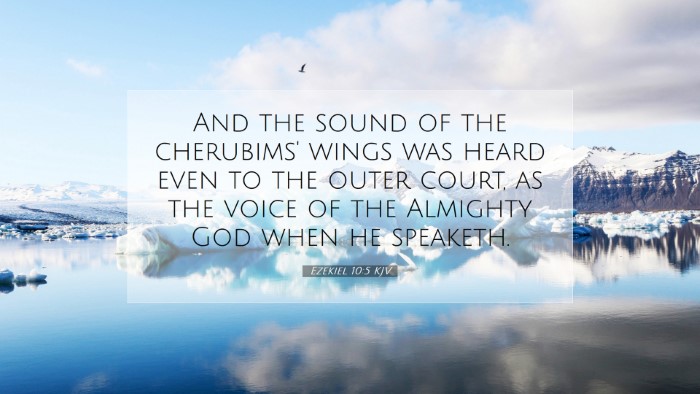Ezekiel 10:5 Commentary
Bible Verse: "And the sound of the cherubims' wings was heard even to the outer court, as the voice of the Almighty God when he speaketh."
Introduction
The verse from Ezekiel 10:5 is a profound commentary on the majesty and power of God's presence, as expressed through the imagery of the cherubim. Ezekiel's vision reveals the intricate relationship between God's glory and the created beings that serve Him. Through the insights of Matthew Henry, Albert Barnes, and Adam Clarke, we can uncover deeper meanings and implications of this verse for theological reflection.
Contextual Background
The book of Ezekiel is a prophetic text characterized by vivid imagery and symbolism. Written during the Babylonian exile, Ezekiel emphasizes God's sovereignty and the hope of restoration. This particular chapter's focus on cherubim ties to the divine glory of God, highlighting how these celestial beings facilitate His presence among His people.
Insights from Commentators
Matthew Henry's Commentary
Matthew Henry highlights the significance of sound in conjunction with the cherubim's wings. He suggests that the sound serves as a manifestation of God's authority and the power behind His voice:
- The Wings of Cherubim: Henry notes that the wings symbolize the divine agents that carry out God's will. Their sound reverberating to the outer court indicates that God's presence is not confined; it extends even to those outside the immediate temple precincts.
- The Voice of Authority: The echo of God's voice, likened to the sound of mighty wings, underscores that God speaks with authority and power. This suggests that when God communicates, His words carry weight and impact.
Albert Barnes' Perspective
Albert Barnes offers a thorough examination of the significance of cherubim in biblical literature. He draws attention to their role as guardians of God's holiness and glory:
- Role of Cherubim: Barnes explains that cherubim often symbolize the divine presence and act as intermediaries between Heaven and Earth. Their sound in the temple signifies God's interaction with humanity.
- God's Majesty: The reference to the "voice of the Almighty God" emphasizes that God's presence is not understated; He is all-powerful and supreme. This connection reinforces the idea that holiness and reverence are essential when approaching God.
Adam Clarke's Analysis
Adam Clarke provides an insightful exposé on the nature of divine sound in worship and its implications:
- Symbolic Imagery: Clarke describes the wings of the cherubim as symbols of speed and power, indicating that when God's will is performed, it is executed with haste and precision.
- Echo of Divine Judgement: The sound reaching the outer court may also symbolize the dispersion of God's presence beyond the confines of the temple, suggesting that His judgment and grace extend to all people. This notion reinforces the idea that God desires a relationship with all of creation.
Theological Reflections
Ezekiel 10:5 presents several theological themes worth exploring:
- The Sovereignty of God: The verse powerfully illustrates God's sovereign rule over all creation, indicating His voice is not only authoritative but also pervasive.
- The Nature of Divine Presence: The sound of the cherubim invites reflection on the nature of God's presence among His people, reminding believers that He is around them, guiding and leading them.
- The Call to Reverence: The description compels believers to approach God with reverence, understanding the gravity of His voice and the implications of His commands.
Conclusion
Ezekiel 10:5 propels us into a deeper understanding of God's grandeur and the importance of His communication with humanity. By synthesizing insights from public domain commentaries, we find a rich tapestry of theological implications that enhance our comprehension of God's relationship with creation. As we reflect upon this verse, let us be reminded of the reverence due to our Almighty God, whose voice echoes with authority and love.


